How do we feed a world in turmoil? We seek to answer this million-dollar question and find solutions for a healthy and food-secure world.
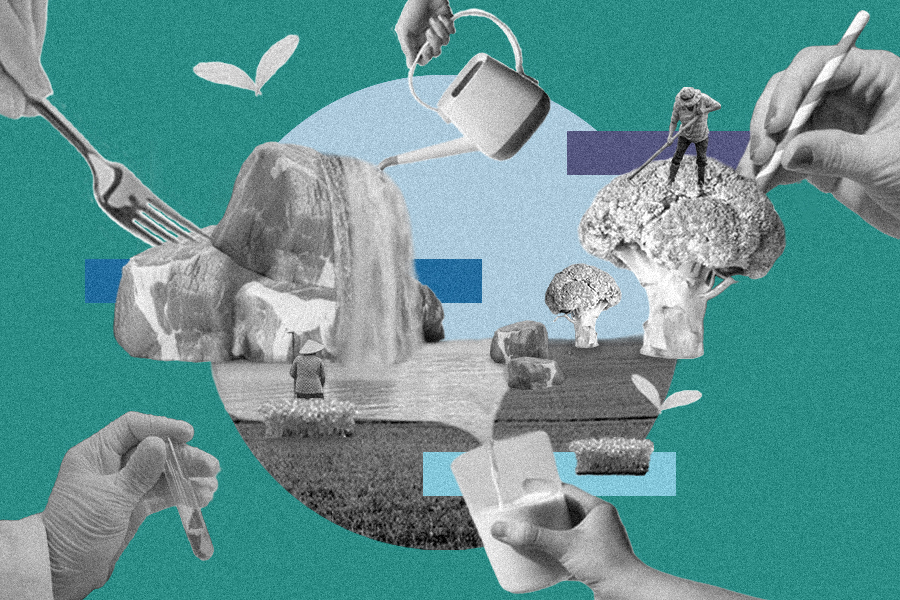
Let’s talk about food—our sustenance, nourishment, and at times guilty pleasure. At its core, food is what fuels us and gives us life. But beyond that, it has the power to influence lifestyles and shape cultures. Yet, hidden beneath the glamour of social media (i.e. all of the mouth-watering #FoodTok content on TikTok) and avant-garde gastronomic experiences popping up around the world, the underbelly of the global food chain is riddled with challenges. With each passing day, the growing demands spurred by population growth and economic development, and the unpredictability brought on by extreme climate crises are threatening how and what we eat.
But there’s still hope! Read on as we examine some inventive solutions that are combatting food insecurities today, and where the future of food is heading.
To address current food-related concerns, industries and governments worldwide are investing in extensive research and technologies to develop targeted solutions, from creating circular food systems that aim to reduce food wastage, to promoting fairer trading practices for all.
Among them, the move towards plant-based food approaches from production to consumption is proving to hold remarkable potential in our bid to achieve a food-secure future.
Here’s how:
After decades of decline, food insecurity is on the rise again as climate change, geopolitical conflicts, and the Covid-19 pandemic have severely hampered efforts to eradicate poverty and hunger. Last year, up to 783 million people faced hunger and malnourishment globally—that’s roughly 11.3% of the world’s population![1]
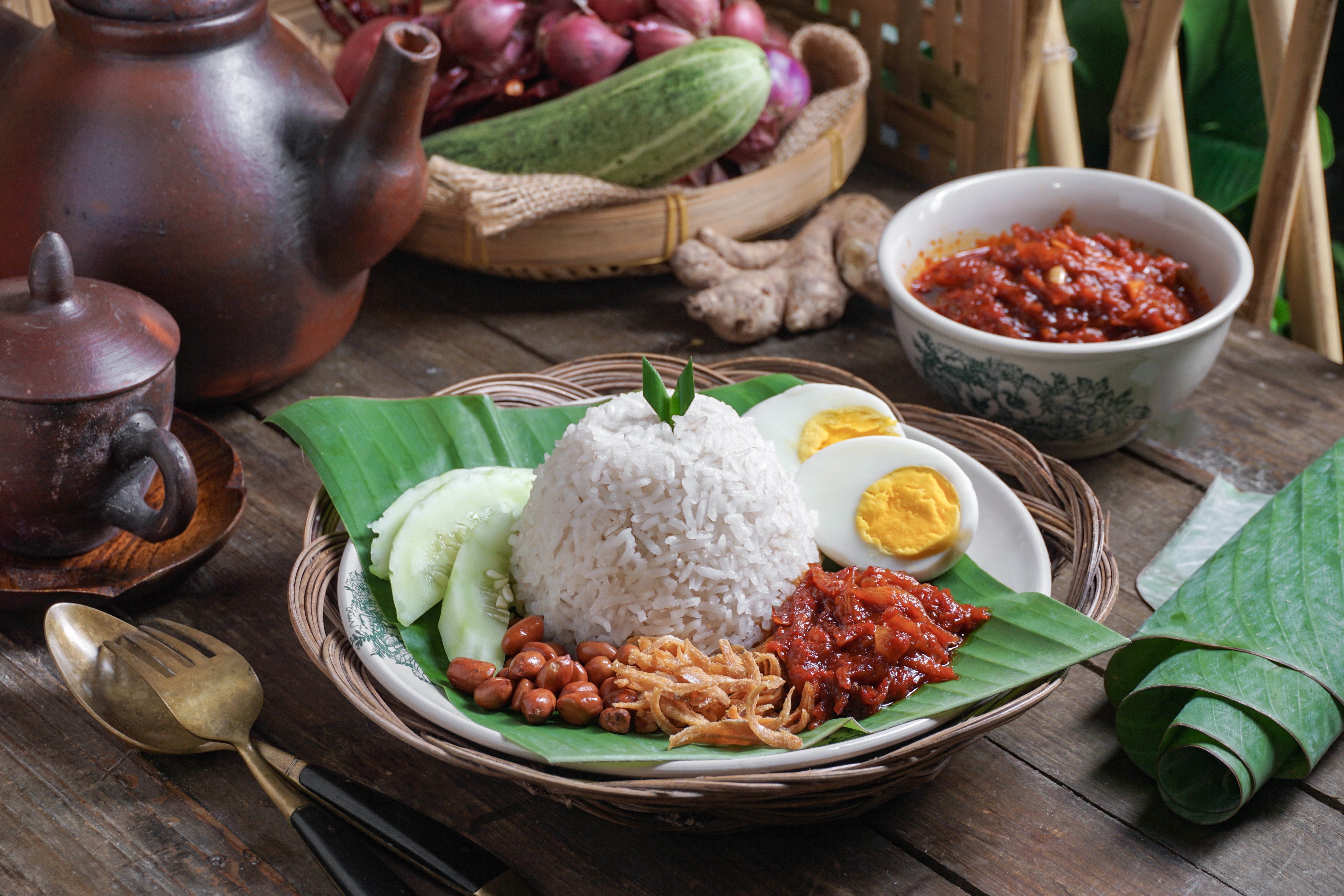
Behind every delectable Singaporean dish is a massive food import and export network that spans over 170 countries, with a huge carbon footprint to boot.
Evidently, the mounting food crisis is concerning, even in first-world nations like Singapore. If you weren’t already aware, more than 90% of our food—rice, meat, vegetables, you name it—are imported.[2] With a lack of natural resources or land available for farming, it comes as no surprise that we remain vulnerable to food shortages and food inflations as a result of external hiccups in the supply chain.
As Singapore and other parts of the globe become increasingly urbanised, the issue of depleting cropland will only become more pressing with time. As such, farmers and food producers need to harness new means to make better use of precious land space.
On our home ground, Agrimax at The Galen is doing just that by striving to manage crop outputs to essentially grow more with less. To put into perspective the magnitude of crop yield gap issues (that is, the difference between yield potential and actual yield), the present average output of rice for major producers in Southeast Asia (i.e. Cambodia, Indonesia, Philippines, Myanmar, Thailand, and Vietnam) is less than half of the estimated potential for the region, a significant plateau from past decades.[3]
To combat this, Agrimax has developed a proprietary fermentation process that works in an efficacious range of biostimulants to improve both quality and quantity of harvest. These products have been tested in various crop types in multiple regions, successfully increasing crop output by at least 20% in optimal conditions.
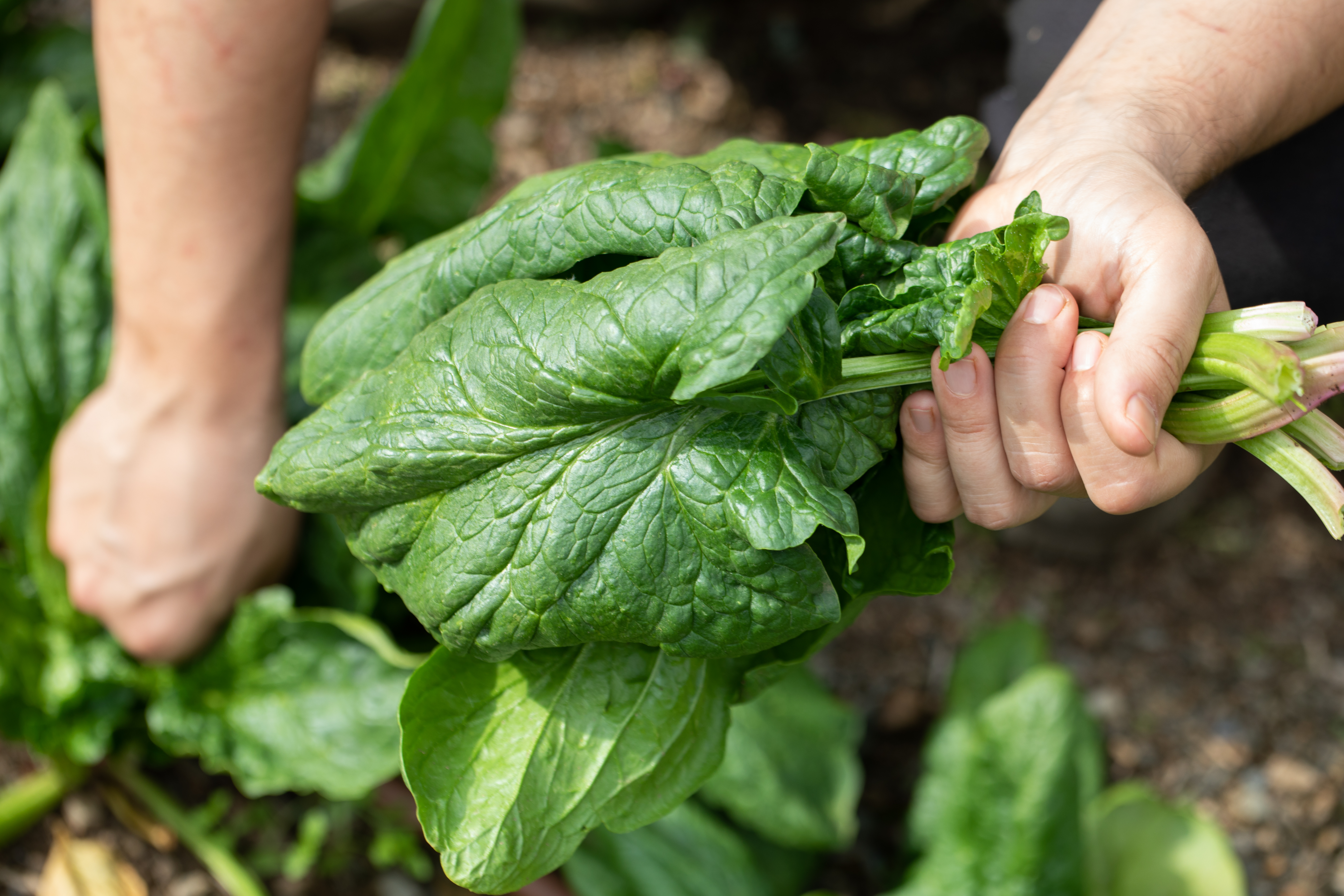
Agrimax’s DK-20 products not only improve returns, but also lengthen the shelf-life of highly perishable produce.
Needless to say, relying solely on outdoor agricultural farming is not sustainable in land-scarce Singapore, so how can we possibly hope to reach our target of producing 30% of our nutritional needs locally by 2030 (Singapore Food Agency’s 30 by 30 goal) when only 1% of our land is dedicated to food production?[4] Well, the answer lies in technology.
A company that takes this in their stride is Singrow, the mastermind behind the world’s first genomic and precision agriculture transformation platform at The Chadwick. There, industry experts have created a novel approach to farming, using advanced artificial intelligence tools to map and sequence crop genomes (genetic information) in a remote and precisely controlled farm system. This allows them to fully dictate how crops grow at every stage, resulting in energy-efficient and fast-growing produce that are in season all-year round. To put it into numbers, we’re talking 20 times more crop yield in 30% less time!
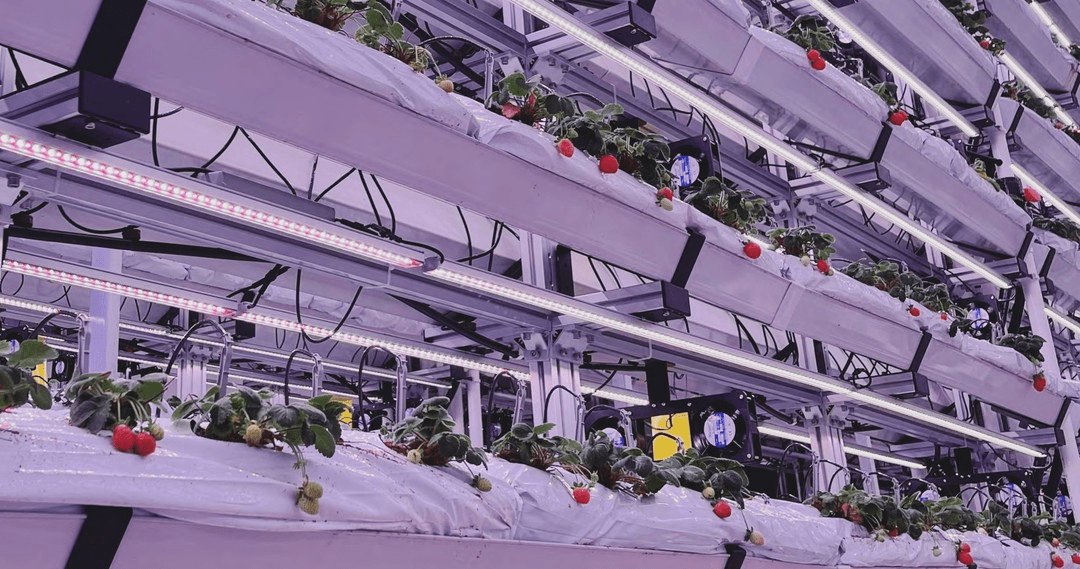
Singrow’s remote system can manage environmental factors, such as light and air moisture, that are otherwise hard to control with traditional farming methods. Image courtesy of Singrow.
In order to meet the rising needs for sustenance, global food processes in operation today have become incredibly wasteful and destructive to the natural world. For one, natural habitats are being destroyed at large to make way for food-making, causing species to go extinct at a frightening rate[5]. Perhaps lesser known to consumers is that the agriculture industry is actually a hidden cause of climate change, contributing to more than 20% of global greenhouse gas emissions, primarily from the release of harmful methane gas in livestock farming and nitrous oxide in heavy fertiliser use[6].
Alas, the detrimental effects of climate change in turn exacerbate food insecurity in what is seemingly a vicious cycle. For the sake of our planet, sustainable means of food production are now more paramount than ever, and as we’ve seen, plant-based solutions are crucial for the industry to move forward sustainably.
Not only that, we as consumers have a part to play too. According to billionaire and philanthropist Bill Gates, who has invested millions in climate change causes, combating the climate crisis involves a significant effort on the individual level, like being willing to commit to new ideas like synthetic meats. But while the shift towards plant-rich diets and cultivated meats is growing momentum across the world, we’re still in the early stages of this transition.
So until such foods become a norm in societies, many will still rely on animal products for essential nutrients, which is where sustainable practices come in.
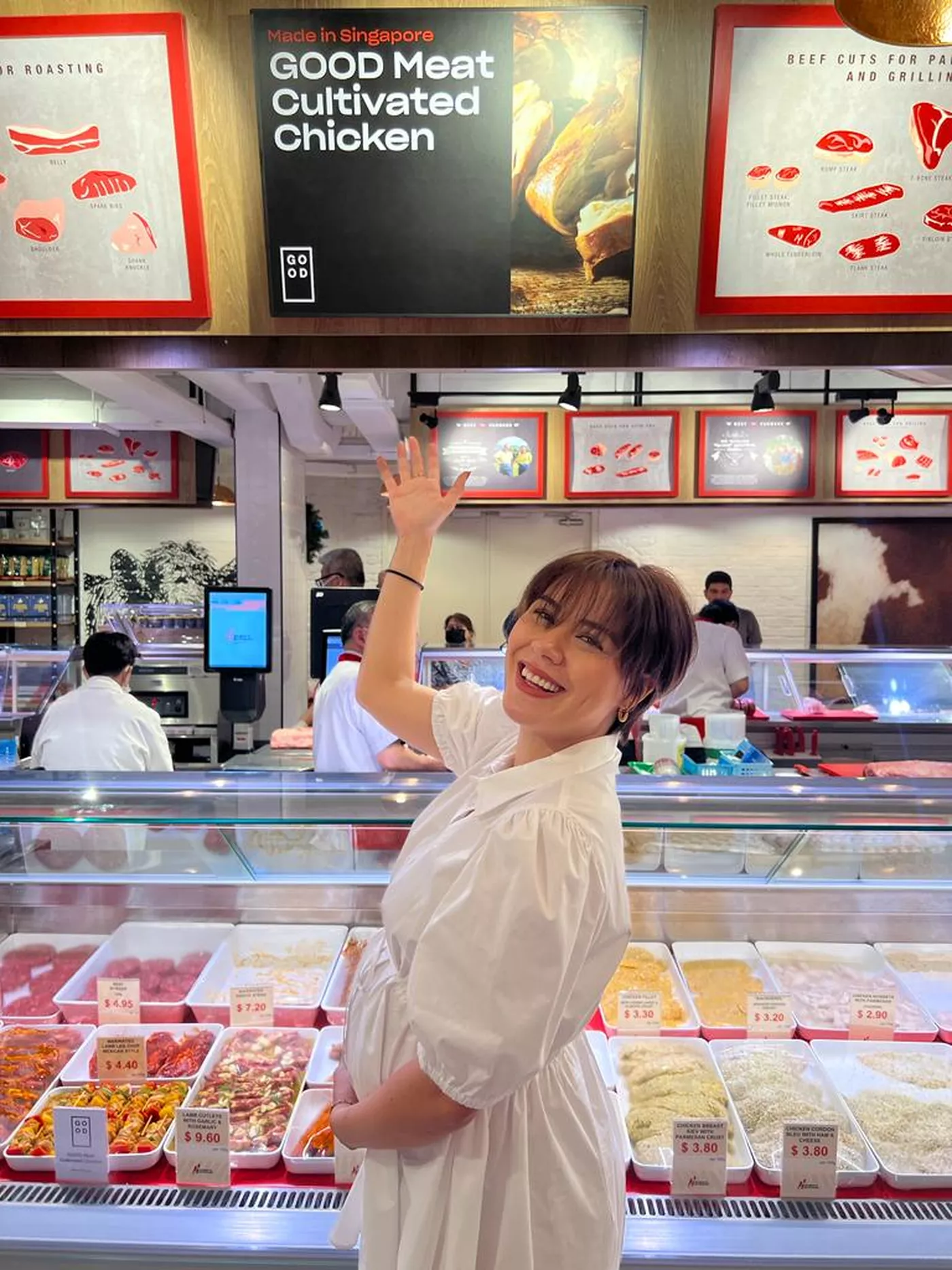
Fun fact: Singapore is the first country in the world to approve the commercial sale of lab-grown meat. Image courtesy of Good Meat.
When it comes to sustainable dairy, Carbery is ahead of the game. The Ireland-based dairy, flavour, and nutritional ingredients company strives to provide delicious and nutritious products to the world, most recently establishing a Business and Innovation Centre at The Galen to better serve the Southeast Asian market.
At present, Carbery is an active participant in a Farm Zero C project, with the goal of creating a climate-neutral dairy farm by 2035, the world’s first in agriculture. They do so by conducting intensive trials to enhance biodiversity and support animal welfare. If successful, they serve as a beacon of hope to other farms and economies that sustainable food production is indeed possible.
While their sights are set on a net-zero future, Carbery certainly doesn’t compromise on the quality and depth of their products. In fact, the company continues to upload a world-class product range, with a strong focus on cheesemaking, that has endless applications for both culinary and pastry needs.
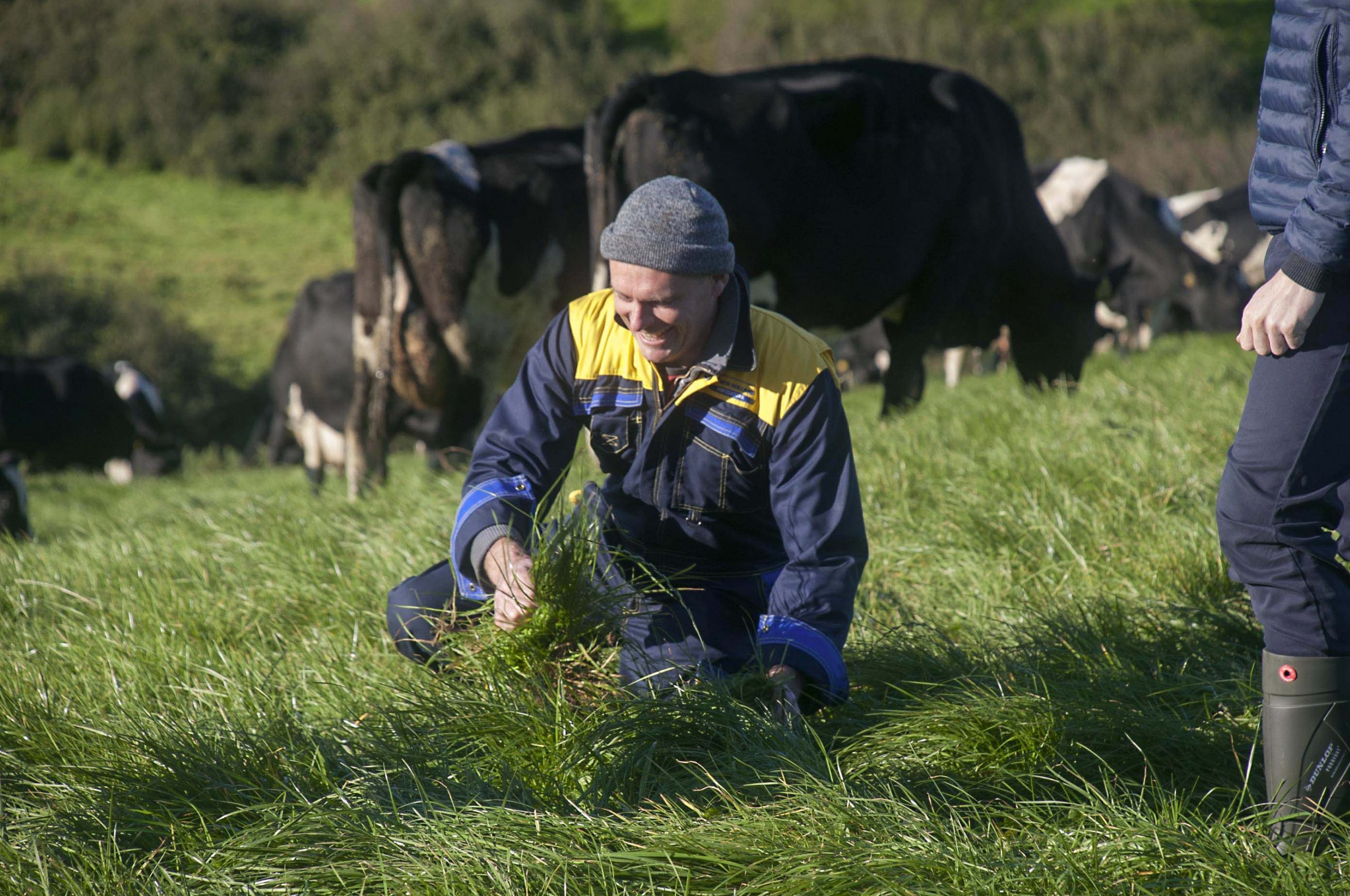
Irish dairy farms like Carbery have the lowest carbon footprint for milk in the EU, thanks to their natural grass feeding systems. Image courtesy of Carbery.
Meanwhile at The Rutherford, FrieslandCampina is another dairy company making waves in the sector. Recognising the pivotal role of dairy to combat malnutrition, FrieslandCampina has spent decades innovating the very first form of sustenance of human life—milk—and continuously works towards expanding the accessibility of essential nutrients to infants and young children who need them the most.
Like Carbery, FrieslandCampina operates with the aim to nourish a better plant. As such, the company developed and now leads a measurable biodiversity approach to encourage farmers to leave a positive impact on the environment, using a Biodiversity Monitor developed alongside the World Wildlife Fund. This monitor using Key Performance Indexes like greenhouse gas emission, soil nitrogen balance, and ammonia emission to provide member dairy farmers with information about the biodiversity of their farm, and the related improvements that can be implemented.
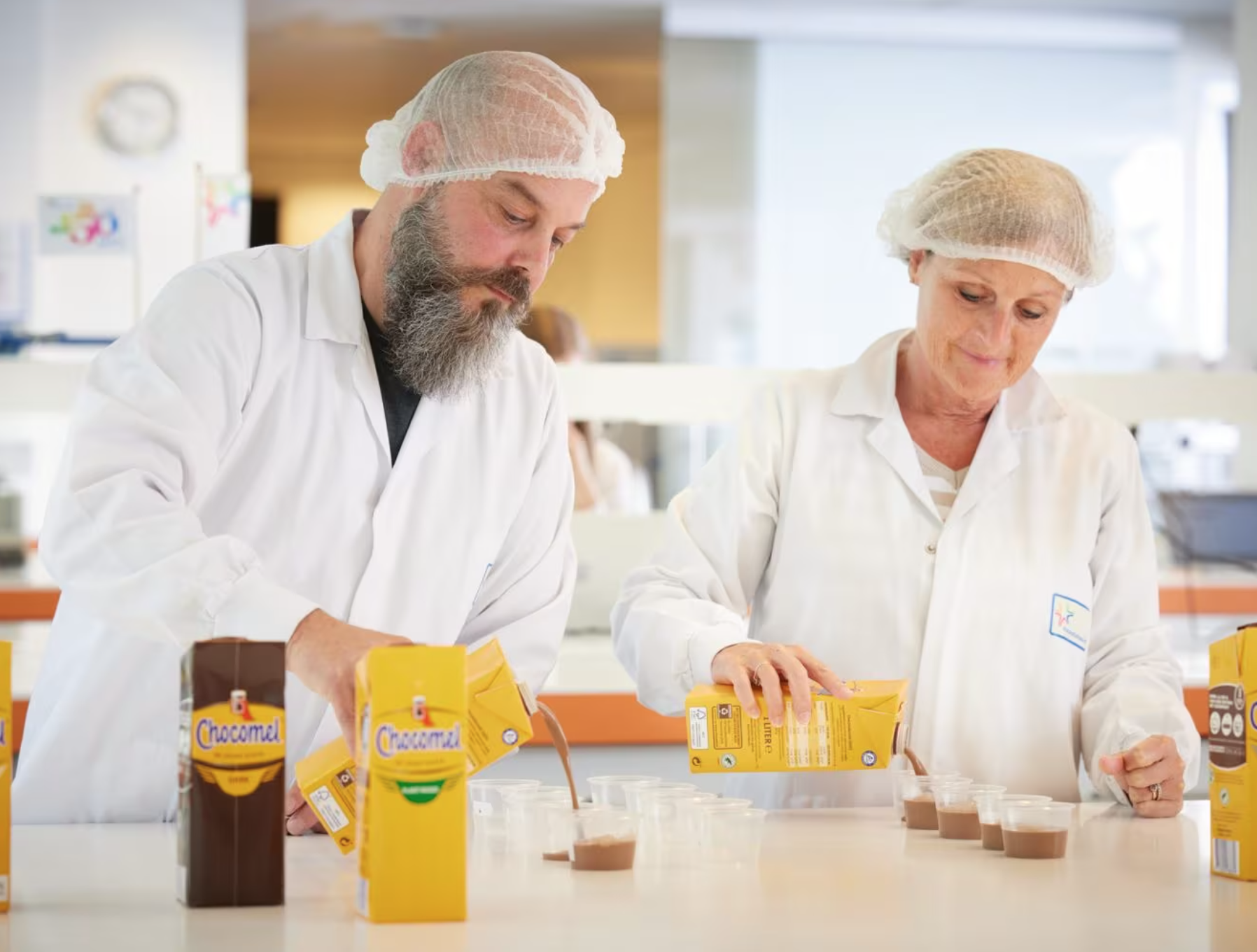
Did you know that FrieslandCampina aided in the creation of a plant-based chocolate milk alternative using cashews and peas? Image courtesy of FrieslandCampina
Of course, the problem of food insecurity is far too complex for one all-encompassing answer. That said, when combined with improved policies and other innovative solutions, plant-based approaches to food production and consumption may just be the key to a well-fed and well-nourished planet.
Keen to know more about the food of the future and try it for yourself? Mark your calendar for the Singapore’s first alternative food festival, Flavours of Tomorrow Festival on 20 and 21 January 2024. This festival, happening in Singapore Science Park, will feature a mega sustainable food and retail market, sharing sessions from up-and-coming startups, live music, games and more! Immerse yourself in an unparalleled culinary experience that will redefine your relationship with food and sustainability.
Follow us on Instagram and Facebook to stay informed about this festival and future events.
References:
1. https://www.worldbank.org/en/topic/agriculture/brief/food-security-update
3. https://www.nature.com/articles/s43016-022-00477-z
4. https://www.sfa.gov.sg/food-for-thought/article/detail/singapore-food-security-despite-the-odds
5. https://www.chathamhouse.org/2021/02/food-system-impacts-biodiversity-loss
_________________________________________________________________________________________________________________
Follow us on Facebook @SingaporeSciencePark and Instagram @sgsciencepark, or even subscribe to our newsletter - your Workplace Community to receive latest updates on our tenant engagement activities.